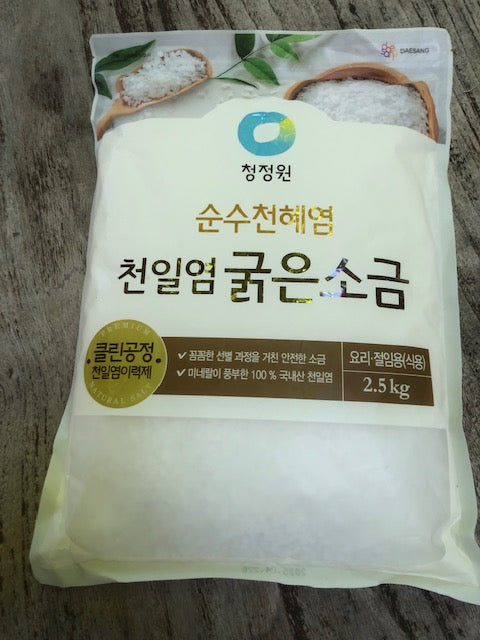1
/
of
1
Cultured Living
Korean Solar Sea Salt (Coarse)
Korean Solar Sea Salt (Coarse)
Regular price
$10.00 AUD
Regular price
Sale price
$10.00 AUD
Unit price
/
per
Taxes included.
Couldn't load pickup availability
Salt is arguably one of the most important ingredients when it comes to making kimchi. It plays a big role in drawing out moisture and is very important to the flavour, texture and how well your food will stay preserved.
Different types of Korean sea salt exist and are listed below but the coarse type of Cheonilyeom called Gul-geun Sogeum 굵은소금 is traditionally used for salting vegetables for kimchi. Coarse salt melts more slowly than finely ground salt allowing for a more gradual and controlled brining process resulting in a more crunchy texture.
To avoid confusion:-
Badasogeum (바다소금): This is the general Korean term for "sea salt" made by natural evaporation of ocean water
Cheonilyeom (천일염): This refers to a minimally processed, natural, sun-dried sea salt, which is considered high-quality and best for fermentation due to its rich mineral content. It has a unique earthy flavour with less sodium and salinity than most other salts and higher iodine content.
Cheon means sky, il means Day or Sun and Yeom means Salt – thus Solar Sea Salt. Sea water is collected in ponds and then naturally dried in the sun, eventually leaving a concentrated amount of salt which then crystalizes. This type of salt naturally retains more moisture than other kinds of salt since it is minimally processed but it also takes time (months) and a lot of human labor.
At least a 3 year old (longer the better), aged Korean solar sea salt where the bittern is drained away over time works best
Gulgeun Sogeum (굵은소금): This literally translates to "coarse salt" and is the common term for Korean coarse sea salt, particularly Cheonilyeom.
What can happen with non-Korean salts:
Most non-Korean salts (except for Diamond Crystal Kosher salt) will be saltier than Cheonilyeom teaspoon for teaspoon
Additives like anti-caking or iodine will hinder fermentation so avoid it
Kimchi may end up bitter unless it’s a salt that’s been aged with the bittern removed
Your kimchi may become mushy sooner and lose its crunch
Obviously you don’t have to use Korean sea salt for Kimchi but I have been very happy with the results I have achieved using it. I am hoping to have this salt available on our online store during the coming week as well as Korean Gochugaru (the all important Kimchi spice)….so if you don’t live near a Korean grocery store don’t despair.
If you are unable to source Korean coarse sea salt the next best salt to use would be granulated plain salt.
Share


